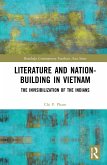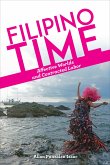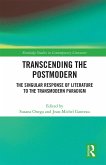"Through an analytic of 'mixed race,' Shimabuku offers an incisive indictment of Japan's middle-class ideology of heteronormativity and racial purity. Provocatively illuminating the recalcitrant possibilities of Okinawan politics and lifeforms beyond law and the State, Alegal must be engaged by everyone concerned with post-1945 Okinawa and fascism in our time."-Lisa Yoneyama, University of Toronto "While Okinawa may seem at the periphery of two imperial powers, Shimabuku puts it dead center in a brilliant and sharp-eyed account of how zones of alegality are also zones of origin for the law itself."-James Martel, San Francisco State University Okinawan life, at the crossroads of American militarism and Japanese capitalism, embodies a fundamental contradiction to the myth of the monoethnic state. Suspended in a state of exception, Okinawa has never been an official colony of the Japanese empire or the United States, nor has it ever been treated as an equal part of Japan. As a result, Okinawans live amid one of the densest concentrations of U.S. military bases in the world. By bringing Foucauldian biopolitics into conversation with Japanese Marxian theory, Alegal uncovers Japan's determination to protect its middle class from the racialized sexual contact around its mainland bases by displacing them onto Okinawa, while simultaneously upholding Okinawa as a symbol of the infringement of Japanese sovereignty. This symbolism, however, has provoked ambivalence within Okinawa. In base towns that facilitated encounters between G.I.s and Okinawan women, the racial politics of the United States collided with the postcolonial politics of the Asia Pacific. Through close readings of poetry, reportage, film, and memoir on base-town life since 1945, Shimabuku traces a continuing failure to "become Japanese." What she discerns instead is a complex politics surrounding sex work, tipping with volatility along the razor's edge between insurgency and collaboration. At stake in sovereign power's attempt to secure Okinawa as a military fortress was the need to contain alegality itself-that is, a life force irreducible to the legal order. If biopolitics is the state's attempt to monopolize life, then Alegal is a story about how borderland actors reclaimed its power for themselves. Annmaria Shimabuku is Assistant Professor of East Asian Studies at New York University.








